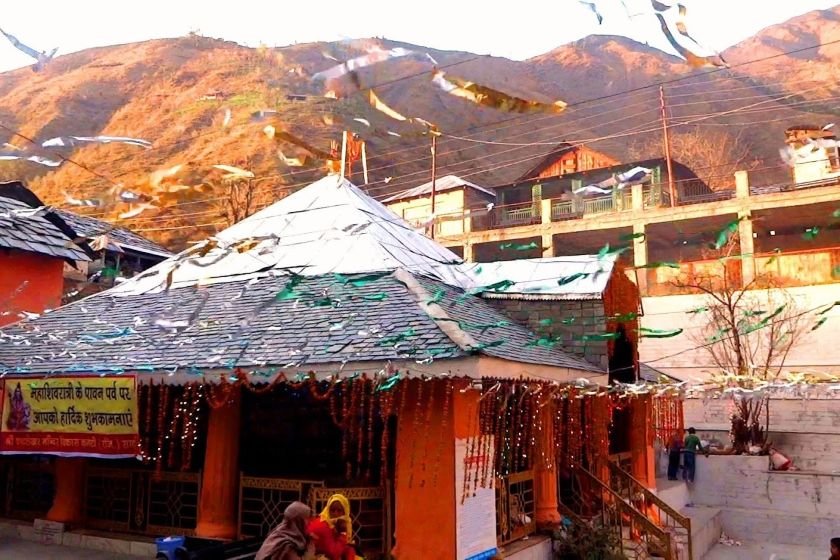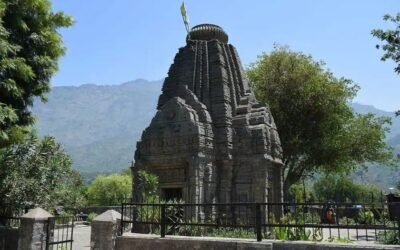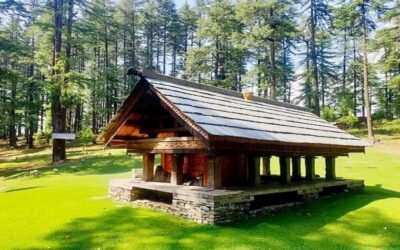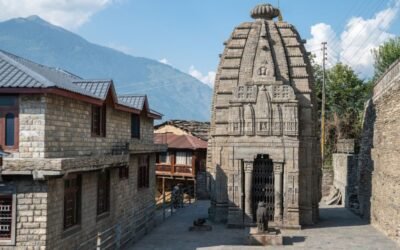📍 Tap for Directions
Location: ~18–20 km from Chamba Town, on the right bank of the Sal River
📅 Season: March–June & September–November for golden fields and festive ambiance
A plateau of peace, crowned by a moon-headed god and wrapped in Suhali song
🕉️ Chandrashekhar Mahadev Temple – The Moon-Crowned Shrine
At the heart of Saho lies the Chandrashekhar Mahadev Temple, dedicated to Lord Shiva in his moon-crowned form. Believed to be built by King Saryaki, son of Bagota, in the 10th century, the temple features:
- A 5-foot tall Shiva Lingam, encased in copper sheets
- Two massive Shiva statues guarding the entrance
- A beautifully carved Nandi bull facing the sanctum
- Natural springs behind the temple, said to have medicinal properties
🔔 Touching the throat of the deity reportedly produces a bell-like sound—an unsolved acoustic mystery that adds to the temple’s mystique.
🌿 Village Life & Cultural Soul
Saho is locally called Suhal, and its residents speak Suhali, a dialect unique to the region. The village is known for:
- Golden wheat fields in summer and lush paddy in monsoon
- Traditional Himachali homes with slate roofs and carved woodwork
- Warm hospitality and deep-rooted spiritual customs
- Annual fairs in May (Baisakh) and August–September, featuring Bhasmasur dance, music, and communal rituals
🐐 The village also serves as a base camp for treks, with trails leading into forested ridges and hidden valleys.
🧭 Plan Your Visit
| 🗺️ Travel Tips | 🏡 Stay Options |
|---|---|
| Reach via Chamba–Saho Road (~18–20 km) | Forest Rest House in Saho or guesthouses in Chamba |
| Nearest railhead: Pathankot (~120 km) | Combine with Bhuri Singh Museum, Chamera Lake, or Bhalei Mata Temple |
| Best time: September for golden fields and temple fair | Carry water, snacks, and respect local customs |
✨ Why It Belongs in Your Guide
Saho Village reflects:
- Spiritual antiquity through its moon-crowned Shiva shrine
- Linguistic and cultural uniqueness via Suhali traditions
- Pastoral poetry in its untouched landscapes and seasonal rhythms
It’s not just a village—it’s a living hymn to Himachal’s quiet soul.




